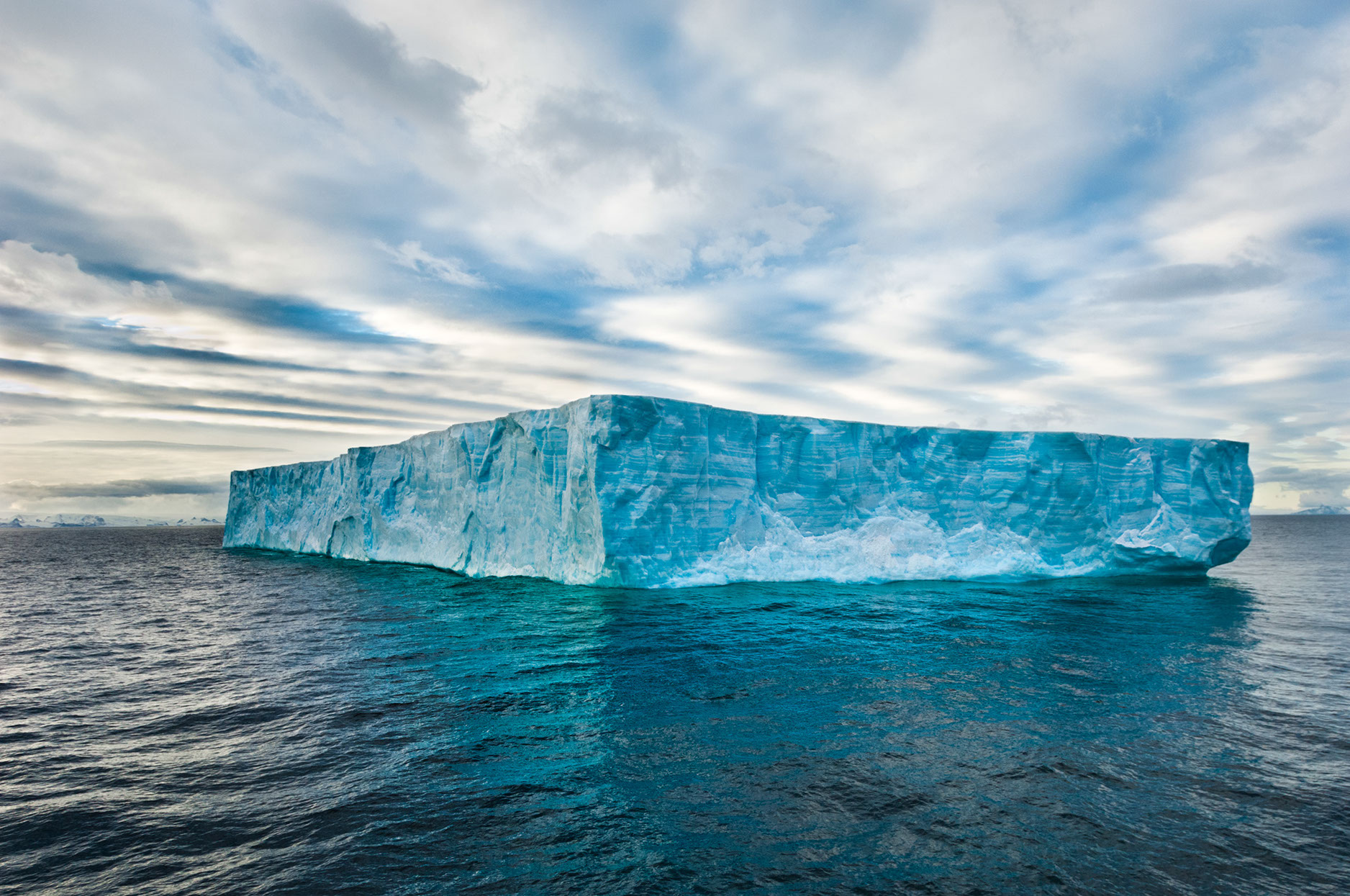
I boarded the Norwegian Coastal Voyage ship, the Nordenorge in Ushuaia, the southernmost city on the planet. It was to be three-week voyage, and we would call at several places in Antarctica, South Georgia and the Falklands, before sailing north to Buenos Aires. We were blessed with relative calm on our two-day crossing of Drake Passage, known for some of the roughest wind seas and wildest winds in the world. I had been warned that on the previous crossing passengers had been strapped in their beds as plates and crystal crashed above them on the dining deck. I was happy I’m not prone to seasickness.
 It was quickly apparent that ice, penguins, seals and more penguins would be the theme of this journey. In a world so white and pristine, it felt as if I were on another planet. Much of our time was spent bobbing along at sea, avoiding icebergs, some as big as five square miles, which floated by like small countries.
It was quickly apparent that ice, penguins, seals and more penguins would be the theme of this journey. In a world so white and pristine, it felt as if I were on another planet. Much of our time was spent bobbing along at sea, avoiding icebergs, some as big as five square miles, which floated by like small countries.
Like many of us on the ship, I was consumed by the story of Sir Ernest Shackleton’s failed 1914 Trans-Antarctic expedition on the Endurance. Although none of his men were lost, it remains a harrowing tale of survival, which was difficult to imagine as we followed much of his journey in the utmost of comfort. We passed Elephant Island where 22 of Shackleton’s men were marooned for four and a half long months, dining on an unappealing diet of raw seal and penguin meat as they awaited their eventual rescue. It is a small slip of a beach, beaten by such gale-force winds that I could barely stand the elements for two hours. I would have made a terrible sailor.
 South Georgia, where Shackleton landed in a small boat after sailing for weeks from Elephant Island, and then had to trek across the island’s summit over crevassed glaciers, stole the show. We danced around the doe-eyed fur seals who playfully enticed with their wilting come-hither-looks, then aggressively snapped at legs with piercing teeth. Sprawling magnanimous elephant seals couldn’t seem to care less, while snoring away through quivering whiskers. It is here, in Grytviken, South Georgia, that Shackleton suffered a heart attack and is buried, on this island which played such a significant role in his life and death.
South Georgia, where Shackleton landed in a small boat after sailing for weeks from Elephant Island, and then had to trek across the island’s summit over crevassed glaciers, stole the show. We danced around the doe-eyed fur seals who playfully enticed with their wilting come-hither-looks, then aggressively snapped at legs with piercing teeth. Sprawling magnanimous elephant seals couldn’t seem to care less, while snoring away through quivering whiskers. It is here, in Grytviken, South Georgia, that Shackleton suffered a heart attack and is buried, on this island which played such a significant role in his life and death.
But the massive colony of yellow-bibbed king penguins is the sight we have been waiting for. They are much bigger than the chinstrap, gentoo, Magellanic and rockhoppers we’ve seen. En mass they sound like a concert of breathy accordions. They know no enemies on land and brazenly waddle right up to us, heads cocked with an insatiable childlike curiosity. We are equally transfixed. Their giant feet jut out from under the folds of fur which protect their eggs and chicks from the elements and circling predatory raptors. Occasionally we’d see a fur ball chick emerge and nestle close among the adults. At one point a herd of reindeer strolled in amidst them. It was difficult to break away from this immersion in such entertaining wonder.
Port Stanley, Falkland Islands, with 2500 inhabitants, seemed a bustling community compared to where we had been. Away from the untouched beauty of nature I was reminded of the destruction of man when we were warned to watch where we walked. There are still some 30,000 unexploded land mines left on 135 sites by the invading Argentine forces in 1982. Some of the most beautiful beaches in the world are now off-limits to people.

On New Island, in the westernmost Falklands, we were back to our beloved penguins, this time the rockhoppers. Smaller than the kings, their glaring red eyes, and spiky yellow tufts of hair give them a punk look. Thousands of them nest in the same rookery as the black-browed albatross, whose fluffy gray chicks squeaked incessantly to be fed. Roddy and Lilly Napier’s family began the first settlement here in 1879. Miles from a bookstore, a movie or market, the only people they are see are the ones who make the effort to visit them by sea, and in continued tradition, they graciously invited all the passengers––some 300 of us––to their farmhouse for tea and cake.

The weather was comparatively warm as our ship pulled away from this last stop, the Napier home dimming in the distance. A few of us sat on deck, relishing the setting golden sun and toasting the end of a fabulous journey with champagne. Humpback whales blew noisily as they flanked the sides of our ship. Rows of penguins lined the hillside, squawking and flapping their flippers as if they’d come to say goodbye. After all, we were the last flock of strange human beings they would see until next season.

